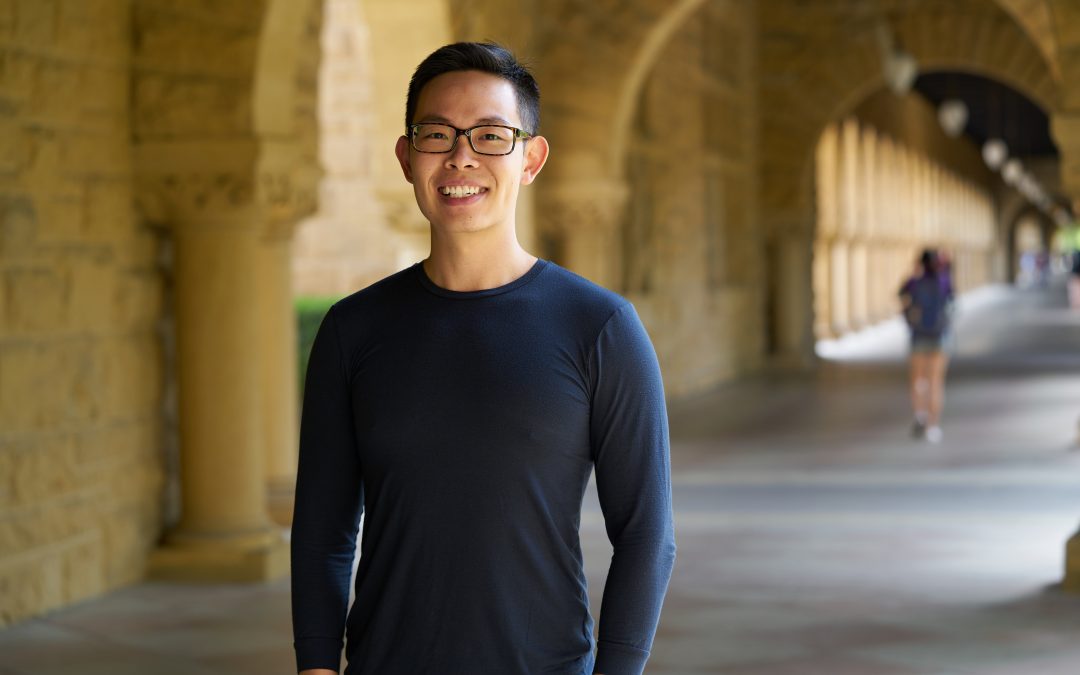Congratulations to 2018 Harry M. Showman Prize Winner, Andy Kah Ping Tay!
Andy Kah Ping Tay, graduating with a Ph.D. in Bioengineering, received the undergraduate Harry M. Showman Prize, which recognizes students who have effectively communicated the achievements, research, results or social significance of any aspect of engineering. He is currently a post-doctoral fellow at Stanford University and will join the faculty of the National University of Singapore next year.
Can you explain your Ph.D. research in general terms? How could this be applied?
My Ph.D. research focuses on non-invasive magnetic neural modulation.
Deep brain stimulation is an FDA-approved treatment for a range of nervous system-related diseases including pain and epilepsy. Unfortunately, for these treatments, patients often need to undergo invasive surgeries to have electrodes implanted into their brains or spinal cords. The surgeries can also lead to chronic inflammation at the site of implantation.
In my research, I developed magnetic hyaluronic acid hydrogels with my friend, Alireza, that are soft and can be injected into the extracellular spaces of the brain/spinal cord cells (neurons) for non-invasive modulation of their activities. The neurons grow healthily in the hydrogels and can be mechanically stimulated via mechano-sensitive proteins on their membrane.
We found that in vitro chronic modulation of primary rat neurons reduced their expressions of mechano-sensitive proteins, PIEZO2, that are known to contribute to pain. We hope to test this system next in in vivo models to see if the results still hold.
What appealed to you about pursuing your doctorate at UCLA?
I was offered Ph.D. positions in a few places but I decided to head to UCLA because of my advisor, Dino Di Carlo. As an undergraduate in Singapore, I have read many of his papers and were highly impressed by the quality of his work. It turns out that my choice was right! Dino is extremely open to new ideas and he does not discourage his students from trying out new experiments. I feel that working in the lab has developed a lot of my scientific independence.
Besides my lab, I am also highly drawn to UCLA’s interdisciplinary research culture. For instance, when I needed help with magnetic field measurements, I could seek out colleagues in the earth sciences department. Imagine reading a paper with co-authors in bioengineering, neuroscience and planetary science! UCLA has so many great facilities that it accelerated my work.
Very importantly, I also enjoy how diverse UCLA is. Before coming to UCLA, I have never imagined making good friends from Iran, South Korea etc. Interactions with my friends have given me a better idea of their cultures, and taught me to interpret world events through different lenses.
How did you get interested in your field?
I feel that my early exposure to research shaped my interest and developed my expertise in biomaterials and mechano-biology. I started as a research intern at the Institute of Bioengineering and Nanotechnology, A*STAR, and developed anti-microbial peptide hydrogels. I then went on study the mechano-biology of malaria-infected red blood cells and circulating tumor cells with Prof CT Lim in the National University of Singapore. These experiences made me love research and wanted a career as a scientist.
When I came to UCLA, I wanted to capitalize on Dino’s expertise in microtechnologies to further understand the mechano-biology of neural networks. Magnetic system is great because it has deep tissue penetration and can be used for both in vitro and in vivo work.
What are your general plans after your post-doc?
With the support of Dino and my scholarship mentors in Singapore, I was awarded the National University of Singapore (NUS)-Overseas Postdoctoral Fellowship for my postdoc in Stanford. In 2019/20, I will return to NUS as an assistant professor where I hope to set up my own lab to continue some of the work I have done in UCLA and Stanford.

